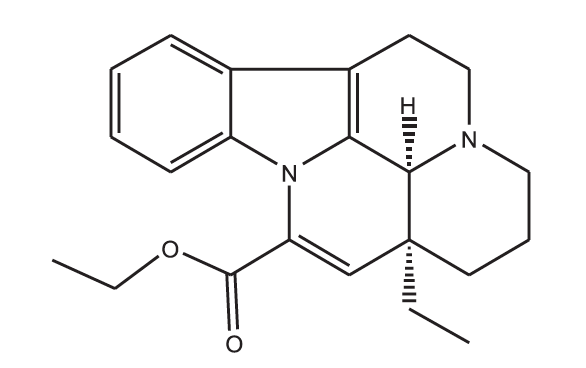What Is Vinpocetine?
Vinpocetine is a very common semisynthetic derivative of an extract from the periwinkle plant. It was developed in Hungary as a pharmaceutical drug for treating a variety of brain-related concerns, like strokes and epilepsy. It isn’t available in the United States as a pharmaceutical-grade drug, but it’s often sold as a nootropic supplement. Most people who take vinpocetine use it because it may improve memory and cerebral metabolism.
How Does Vinpocetine Work?
In a nootropic context, vinpocetine is typically taken by mouth, so it’s absorbed quickly into the bloodstream, which carries it to the brain. Once it’s in your system, it works to reduce neural inflammation and enhance neuroprotection against toxins or excess stimulation. This protection from stress can help decrease cognitive decline that comes with age. This means it can help improve reaction times, for example. Some users report that this helps them improve their memories.
Some studies on vinpocetine are done with vinpocetine infusions, which makes it hard to know exactly what will happen when you take it orally. In some of these intravenous studies, vinpocetine seems to improve blood flow to the brain, which could help to reduce headaches (and is in line with some of the more traditional uses of periwinkle in complementary medicine). There are no studies linking reduced headaches when you take vinpocetine orally, but some users do report feeling better.
All of these effects can be pronounced, with some studies suggesting that vinpocetine could even help prevent things like amnesia. It’s important to bear in mind, though, that these studies were conducted on people who had experienced brain trauma, not healthy individuals who were looking for a cognitive boost.
Another mechanism of vinpocetine is its ability to interact with several major ion channels (think calcium, potassium, and sodium). This means that it can possibly have a suppressive effect on neuroprotection and neurotransmitter release if glutamate or dopamine are also suppressed. This is important because some studies show that dopamine and glutamate can cause oxidative damage if they’re overstimulated by toxins. High dopamine levels can cause a feeling of agitation or anxiety, and too much glutamate can make you feel tired.
Lastly, vinpocetine has a mechanism that is a PDE1 inhibitor. This means that it has the ability to both enhance your cognition and protect your heart from disease. The research on this is still fairly nascent and this effect appears to require a dosage much larger than most users get in a supplement, but the link is promising.
Where Can I Get Vinpocetine?
Since vinpocetine is synthetic, there aren’t any naturally occurring dietary sources of it. You have the option to add it to your stack as a standalone supplement; some people find it stacks well with Piracetum and ginko biloba. There are also a lot of supplement blends containing vinpocetine. If that sounds like a better fit for you, EBOOST drink powders contain vinpocetine in their recipe.
Have you tried vinpocetine? Did it improve your memory? Tell us about it in the comments.


